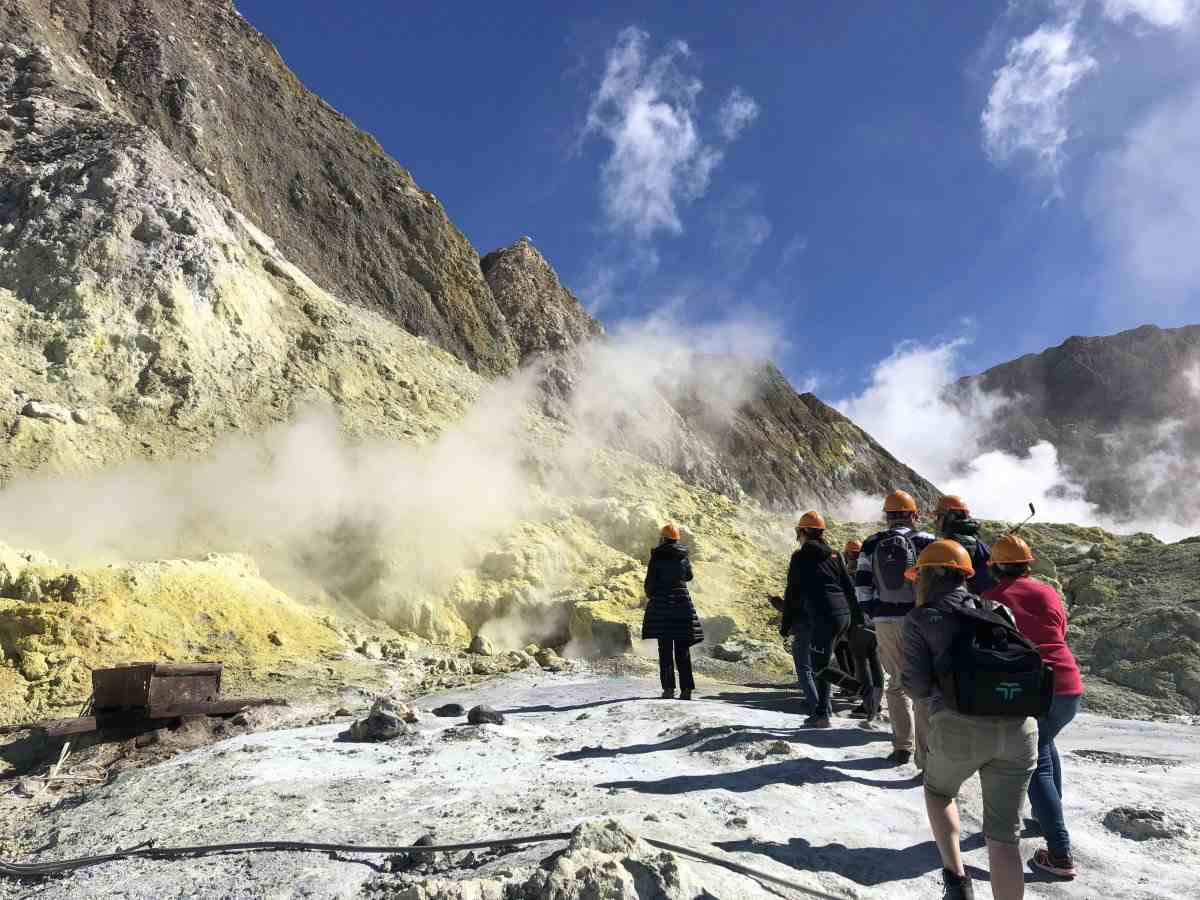ACAT intervenes in White Island case to address landowner liability concerns
The Aotearoa Climbing Access Trust (ACAT) will represent the interests of climbers and the outdoor recreation community in the upcoming High Court appeal by Whakaari Management Ltd.
The Aotearoa Climbing Access Trust (ACAT) will represent the interests of climbers and the outdoor recreation community in the upcoming High Court appeal by Whakaari Management Ltd.
ACAT is joining the proceedings as a third party to advocate for a judgment that goes some way to allaying landowners’ liability concerns regarding climber access. Such concerns tend to create a chilling effect on recreational access to private land. Access to the outdoors for recreation is Aotearoa’s heritage and we want to safeguard its future for generations to come.

Tourists on Whakaari / White Island in April 2019. Photo: Kimberley Collins, licensed under CC BY-SA.
In doing so, however, we wish to acknowledge the awful tragedy that occurred on Whakaari and the terrible suffering of those on the island that day and their whānau and friends. ACAT’s involvement in these proceedings is not intended to disrespect the victims of this disaster or diminish its impacts in any way.
ACAT will not comment on whether or not WML’s appeal should succeed, but will seek to limit any unintended or undesirable consequences from the court’s decision for climbing and other recreational access.
ACAT is represented by senior barrister John Dixon KC, barrister Charles Cox, and leading law firm Bell Gully in this matter on a pro bono basis.
About the court case
Whakaari Management Ltd (WML) is the company that controlled access to the island at the time of the 2019 eruption that tragically killed 22 people and injured 25 more. WML entered into license agreements with various tour operators, enabling the operators to run commercial walking tours on the island.
WML was successfully prosecuted by WorkSafe in 2023 for breaching the Health and Safety at Work Act 2015. WML has appealed against its conviction.
ACAT applied for and was granted leave to intervene in the proceedings as a third party.
Aotearoa Climbing Access Trust and liability issues
ACAT was founded in 2021 to support public access to outdoor rock-climbing areas (crags) in the face of mounting access barriers. High-quality crags are rare and often irreplaceable in Aotearoa. Many are located on private land, and public access relies entirely on the goodwill of landowners.
Landowners’ concerns about potential liability are a leading cause of access restrictions. ACAT has done significant work to reassure landowners that there is no real risk of liability if a rock climber has an accident while climbing on their land, such as publishing climbing-specific legal information on our website.
In general, recreational activities like rock climbing are not covered by the Health and Safety legislation, which is focused on work and workplaces. As such, most landowners have no risk of liability if a climber has an accident on their property.
What makes the Whakaari case different?
The Whakaari case is the first time that a landowner has been ever prosecuted in relation to recreational activities in NZ (in this case, walking tours). The dangerous setting on an active volcano, and the horrific scale of the disaster, set this apart from ordinary cases.
Unfortunately, despite this being such an unusual case, WML’s conviction may increase the perceived risk of liability for other landowners. ACAT considers that whatever decision the High Court makes about WML’s appeal, it should make that decision on the facts of the appeal, but cognisant of the wider issues at play for outdoor recreation.
Thanks
ACAT is immensely grateful to John Dixon KC, Charles Cox, Bell Gully, and John Palmer for their pro bono work on this matter.